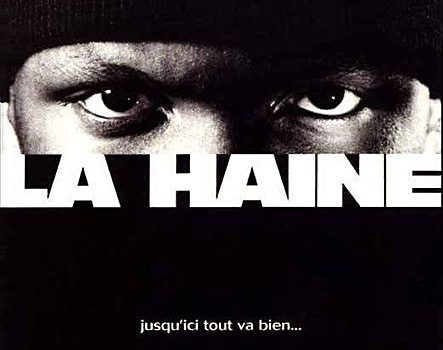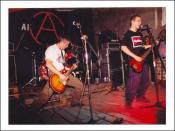Andrea
Versione serba di Lidija Miličević

Come (quasi) sempre per le versioni in lingua serba, diamo sia quella in latinica sia quella in ћирилица. [CCG/AWS Staff]
ANDREA
(Continues)
(Continues)
Contributed by Lidija milicevic 2009/4/10 - 21:43
Soldadito Español

[1992]
Album:Soldadito Español
Album:Soldadito Español
Todas las mañanas cuando suena la corneta
(Continues)
(Continues)
Contributed by Simo 2009/4/10 - 21:31
Onda libera
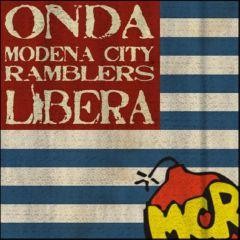
[2009]
Album: Onda libera

Onda libera - Libera terra - Valzer chiuso in soffitta - Il Naufragio del Lusitalia - Figli del vento - Il mulino e il tuo giardino - Di corsa - Prigioniero di chi ? - C'è tanto ancora - Libera mente - La ballata della dama bianca - L'uomo nell'alto castello
Una dichiarazione d’intenti per una visione veramente “libera” del nostro futuro e del nostro impegno, per la qualità delle scelte che ci coinvolgono come cittadini e individui. L’onda è partita dalle scuole, non possiamo che guardare ai giovani studenti per immaginare e auspicare un cambiamento nella nostra società e nei suoi tanti falsi “valori di libertà”.
Album: Onda libera

Onda libera - Libera terra - Valzer chiuso in soffitta - Il Naufragio del Lusitalia - Figli del vento - Il mulino e il tuo giardino - Di corsa - Prigioniero di chi ? - C'è tanto ancora - Libera mente - La ballata della dama bianca - L'uomo nell'alto castello
Una dichiarazione d’intenti per una visione veramente “libera” del nostro futuro e del nostro impegno, per la qualità delle scelte che ci coinvolgono come cittadini e individui. L’onda è partita dalle scuole, non possiamo che guardare ai giovani studenti per immaginare e auspicare un cambiamento nella nostra società e nei suoi tanti falsi “valori di libertà”.
È un’onda che si allunga
(Continues)
(Continues)
Contributed by DonQuijote82 2009/4/10 - 20:22
On The Turning Away

Ho aggiunto la punteggiatura, per lo scorrimento del testo.
VOLGENDOCI ALTROVE
(Continues)
(Continues)
Contributed by Fabio 2009/4/10 - 19:40
Banneri
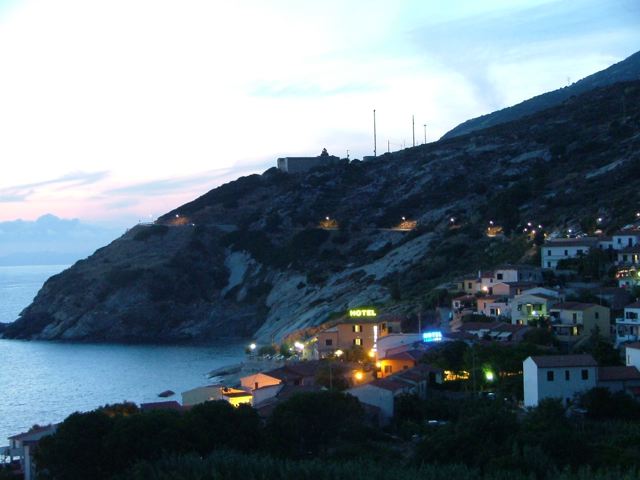
Di adattamento si tratta; ad esempio, al posto dei mandorli (che all'Elba non ci sono, o ce ne sono pochissimi), ci ho messo i fichi (di quelli ce ne sono tantissimi, anche davanti a casa mia). "Dividere" a dire il vero si dice "dipartà", ma ho messo "indipartà" per la metrica; tanto si capisce lo stesso. L'adattamento è cantabile, e ho fatto di tutto perché l'elbano usato fosse quanto più vicino possibile al còrso dirimpettaio. (RV)
BANDIERE
(Continues)
(Continues)
2009/4/10 - 18:50
Jour ordinaire

De Brice Homs et Sylvain Richardot
Aujourd’hui tout va bien
(Continues)
(Continues)
Contributed by Alessandro 2009/4/10 - 14:20
Chômage au fond de la vallée
Parodie d’après "Les trois cloches" (J.Vilar)
Una canzone quanto mai attuale, oggi che finalmente i lavoratori, anzichè farsi supinamente inculare dall'AD di turno, sempre più spesso lo sequestrano e gli fanno provare - come cantava Paolo Conte - il freddo del brivido...
Bruxelles - Sequestrati e rilasciati tre manager Fiat
Francia, altri quattro manager sequestrati
Francia: libero manager 3M rapito dagli operai
Una canzone quanto mai attuale, oggi che finalmente i lavoratori, anzichè farsi supinamente inculare dall'AD di turno, sempre più spesso lo sequestrano e gli fanno provare - come cantava Paolo Conte - il freddo del brivido...
Bruxelles - Sequestrati e rilasciati tre manager Fiat
Francia, altri quattro manager sequestrati
Francia: libero manager 3M rapito dagli operai
Chômage au fond de la vallée
(Continues)
(Continues)
Contributed by Alessandro 2009/4/10 - 13:42
Petit Pasqua Noël
Paroles de S.Richardot
Parodie tirée de "Petit Papa Noël" (M.Pons - H.Martinet)
Visto che è Pasqua, eccovi una bella canzoncina (di Natale) dedicata a Charles Pasqua, ministro dell'interno con Chirac e Balladur tra la fine degli anni '80 e la metà dei '90, noto per il suo "celodurismo", il suo "pugno di ferro" contro la protesta popolare (ci si ricordi di Malik Oussekine, studente di 20 anni ammazzato dalla polizia durante una manifestazione nel 1986...) e le sue posizioni fascistoidi (ripristino della pena di morte, cancellazione dei diritti degli immigrati - le famigerate leggi Pasqua-Debré...)
Ah, dimenticavo... Charles Pasqua è il grande mèntore di Sarkozy, del quale è stato anche testimone delle prime nozze nel 1982...
Parodie tirée de "Petit Papa Noël" (M.Pons - H.Martinet)
Visto che è Pasqua, eccovi una bella canzoncina (di Natale) dedicata a Charles Pasqua, ministro dell'interno con Chirac e Balladur tra la fine degli anni '80 e la metà dei '90, noto per il suo "celodurismo", il suo "pugno di ferro" contro la protesta popolare (ci si ricordi di Malik Oussekine, studente di 20 anni ammazzato dalla polizia durante una manifestazione nel 1986...) e le sue posizioni fascistoidi (ripristino della pena di morte, cancellazione dei diritti degli immigrati - le famigerate leggi Pasqua-Debré...)
Ah, dimenticavo... Charles Pasqua è il grande mèntore di Sarkozy, del quale è stato anche testimone delle prime nozze nel 1982...
C'est la belle nuit de Noël,
(Continues)
(Continues)
Contributed by Alessandro 2009/4/10 - 13:19
Porque los pobres no tienen

English Version by David Anderson
Because the poor don't have
(Continues)
(Continues)
Contributed by Marcia 2009/4/10 - 11:06
La carta

English Version by David Anderson
THE LETTER
(Continues)
(Continues)
Contributed by Marcia 2009/4/10 - 10:54
Centopassi
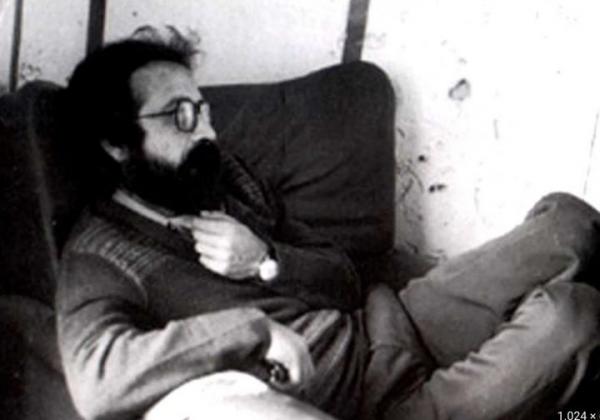
Con i capelli al vento ed il cuore in mano
(Continues)
(Continues)
Contributed by CCG/AWS Staff 2009/4/10 - 09:32
Song Itineraries:
Mafia and Mafias
Naufragio a Milano

[1975]
Testo e musica di Paolo Conte
Lyrics and music by Paolo Conte
Album: Paolo Conte vol. 2
Mettiamo che, ovviamente, conosciate Paolo Conte. Come non conoscerlo, Paolo Conte? È uno dei più noti autori e cantautori italiani, in Francia lo idolatrano, in America lo adorano. L'attempato avvocato di Asti che, come tutti gli avvocati di questo mondo, ama la musica e particolarmente il jazz (io il jazz lo detesto, e anche per questo non ho mai fatto l'avvocato); quello che ha scritto Azzurro, Via con me, che ha la moglie che piace a Roberto Benigni, che disegna personalmente finanche i bozzetti di Razmataz, che ama le Topolino amaranto, che finisce persino nei fumetti di Cavezzali assieme a Guccini, Dalla e De Gregori (accadde nel mitico 1979, l'anno dei concerti di De André, l'anno degli stadi pieni), che fa il gran maestro del Palio di Asti. Paolo Conte è tutto questo: spiaceva, e molto,... (Continues)
Testo e musica di Paolo Conte
Lyrics and music by Paolo Conte
Album: Paolo Conte vol. 2
Mettiamo che, ovviamente, conosciate Paolo Conte. Come non conoscerlo, Paolo Conte? È uno dei più noti autori e cantautori italiani, in Francia lo idolatrano, in America lo adorano. L'attempato avvocato di Asti che, come tutti gli avvocati di questo mondo, ama la musica e particolarmente il jazz (io il jazz lo detesto, e anche per questo non ho mai fatto l'avvocato); quello che ha scritto Azzurro, Via con me, che ha la moglie che piace a Roberto Benigni, che disegna personalmente finanche i bozzetti di Razmataz, che ama le Topolino amaranto, che finisce persino nei fumetti di Cavezzali assieme a Guccini, Dalla e De Gregori (accadde nel mitico 1979, l'anno dei concerti di De André, l'anno degli stadi pieni), che fa il gran maestro del Palio di Asti. Paolo Conte è tutto questo: spiaceva, e molto,... (Continues)
Integrazione, parola amara
(Continues)
(Continues)
Contributed by Riccardo Venturi 2009/4/10 - 05:15
L'operaio Gerolamo
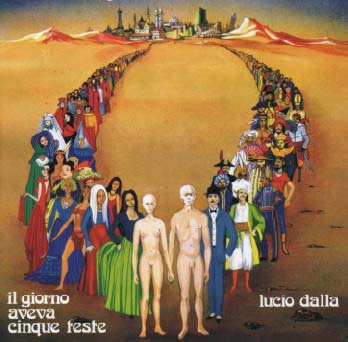
[1973]
Testo di Roberto Roversi
Musica di Lucio Dalla
Album: Il giorno aveva cinque teste
Torino, la Germania, la banlieue parigina, Milano (con accento terrone): posti dove si va a lavorare. Dove si va a morire di lavoro. Dove va l'operaio Gerolamo, che è tutti gli operai, che è tutti gli immigrati, che è tutti i sud. Che è tutti i ritmi di lavoro uguali, ossessivi, disumani. Che è tutta la fabbrica dell'abbondanza e dei miracoli altrui. Che è tutta quella cosa che si chiamava comunanza, e che a volte si chiamava pure lotta di classe. Che è tutta la solitudine della produzione per il padrone. Che è la stanchezza della sera. Il sole s'alza e poi cala; l'operaio Gerolamo è ovunque. Ancora. [RV]
Testo di Roberto Roversi
Musica di Lucio Dalla
Album: Il giorno aveva cinque teste
Torino, la Germania, la banlieue parigina, Milano (con accento terrone): posti dove si va a lavorare. Dove si va a morire di lavoro. Dove va l'operaio Gerolamo, che è tutti gli operai, che è tutti gli immigrati, che è tutti i sud. Che è tutti i ritmi di lavoro uguali, ossessivi, disumani. Che è tutta la fabbrica dell'abbondanza e dei miracoli altrui. Che è tutta quella cosa che si chiamava comunanza, e che a volte si chiamava pure lotta di classe. Che è tutta la solitudine della produzione per il padrone. Che è la stanchezza della sera. Il sole s'alza e poi cala; l'operaio Gerolamo è ovunque. Ancora. [RV]
S’alza il sole sui monti
(Continues)
(Continues)
2009/4/10 - 04:58
Song Itineraries:
The War of Labour: Emigration, Immigration, Exploitation, Slavery
Un'auto targata TO

[1973]
Testo di Roberto Roversi
Musica di Lucio Dalla
Album: Il giorno aveva cinque teste
Canzone del 1973. Fa parte del primo dei tre album storici in cui Lucio Dalla cantò testi di Roberto Roversi. Le note dicono che l'inizio del brano è una citazione dell'introduzione della canzone La storia di Maddalena, scritta da Ron nel 1971, incisa nientemeno che da Sofia Loren ed inclusa nella colonna sonora del film La mortadella di Mario Monicelli (con la stessa Loren, Gigi Proietti, Susan Sarandon e Danny De Vito). Nelle versioni inserite nelle compilation successive il titolo è perlopiù modificato in L'auto targata TO.
”Ho ascoltato questa canzone per la prima volta quando avevo 14, 15 anni su un cassetta che qualcuno aveva prestato a mio fratello. Da allora, ogni volta che sento parlare di Torino penso a quest'auto targata TO..che arriva dalla Calabria, carica di figli del sud emigrati... (Continues)
Testo di Roberto Roversi
Musica di Lucio Dalla
Album: Il giorno aveva cinque teste
Canzone del 1973. Fa parte del primo dei tre album storici in cui Lucio Dalla cantò testi di Roberto Roversi. Le note dicono che l'inizio del brano è una citazione dell'introduzione della canzone La storia di Maddalena, scritta da Ron nel 1971, incisa nientemeno che da Sofia Loren ed inclusa nella colonna sonora del film La mortadella di Mario Monicelli (con la stessa Loren, Gigi Proietti, Susan Sarandon e Danny De Vito). Nelle versioni inserite nelle compilation successive il titolo è perlopiù modificato in L'auto targata TO.
”Ho ascoltato questa canzone per la prima volta quando avevo 14, 15 anni su un cassetta che qualcuno aveva prestato a mio fratello. Da allora, ogni volta che sento parlare di Torino penso a quest'auto targata TO..che arriva dalla Calabria, carica di figli del sud emigrati... (Continues)
Un' auto vecchia torna
(Continues)
(Continues)
Contributed by Riccardo Venturi 2009/4/10 - 03:34
Song Itineraries:
Cars, The War of Labour: Emigration, Immigration, Exploitation, Slavery
El pianista del gueto de Varsovia

Vedo che non c'è traduzione di quest'altro pezzo meraviglioso di Drexler, ecco la mia versione.
Non ho capito se con lingua di arrivo devo mettere la lingua in cui traduco il testo o la lingua in cui è scritto il testo originale...
Non ho capito se con lingua di arrivo devo mettere la lingua in cui traduco il testo o la lingua in cui è scritto il testo originale...
La lingua di arrivo è sempre quella in cui si traduce (a proposito: attento agli spagnolismi, in italiano si traduce in mentre in spagnolo si traduce a). Grazie per questo tuo prezioso contributo...con la speranza di averne altri!
PS. In ogni traduzione deve essere messo il titolo tradotto, in maiuscole; qui l'ho aggiunto io. [RV]
PS. In ogni traduzione deve essere messo il titolo tradotto, in maiuscole; qui l'ho aggiunto io. [RV]
IL PIANISTA DEL GHETTO DI VARSAVIA
(Continues)
(Continues)
Contributed by http://Justleoo.blogspot.com 2009/4/10 - 02:15
L'uomo coi capelli da ragazzo
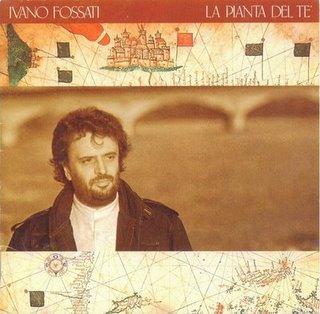
[1988]
Testo e musica di Ivano Fossati
Lyrics and music by Ivano Fossati
Album:La pianta del tè
Testo e musica di Ivano Fossati
Lyrics and music by Ivano Fossati
Album:La pianta del tè
L'uomo avrà quarant'anni
(Continues)
(Continues)
Contributed by Paola 2009/4/9 - 23:13
Song Itineraries:
Lunatics and lunatic camps: Lagers, troubles, repression, freedom
Via Moncalieri

[2009]
Paroles et musique par Marco Valdo M.I.
Canzone léviane – Via Moncalieri
Cycle du Cahier ligné – 6.
Via Moncalieri est la sixième canzone du cycle du Cahier ligné. Via Moncalieri, c'est l'enfance de Carlo Levi, c'est Turin. À cette époque, vers le début du siècle dernier, Turin est une grande ville – pour son temps, elle voisine encore avec les champs. La Via Moncalieri s'en va vers les premières côtes toutes proches qui mènent vers les Alpes que l'on voit pas trop loin. Les enfants, les autres...les petits paysans du village encore tout proche parlent le dialecte . « A sun rivà. I Cunt a sun rivà !» Et les terres, les champs, les prés, sont aux Comtes de Roero; c'est la génération suivante qui détruira le paysage à coups d'automobiles et d'industries. En ce temps-là, on respire encore assez bien aux portes de la ville. Lucia, sœur Lucia, qui soigne Carlo Levi aveugle et qui... (Continues)
Paroles et musique par Marco Valdo M.I.
Canzone léviane – Via Moncalieri
Cycle du Cahier ligné – 6.
Via Moncalieri est la sixième canzone du cycle du Cahier ligné. Via Moncalieri, c'est l'enfance de Carlo Levi, c'est Turin. À cette époque, vers le début du siècle dernier, Turin est une grande ville – pour son temps, elle voisine encore avec les champs. La Via Moncalieri s'en va vers les premières côtes toutes proches qui mènent vers les Alpes que l'on voit pas trop loin. Les enfants, les autres...les petits paysans du village encore tout proche parlent le dialecte . « A sun rivà. I Cunt a sun rivà !» Et les terres, les champs, les prés, sont aux Comtes de Roero; c'est la génération suivante qui détruira le paysage à coups d'automobiles et d'industries. En ce temps-là, on respire encore assez bien aux portes de la ville. Lucia, sœur Lucia, qui soigne Carlo Levi aveugle et qui... (Continues)
Mon rêve se dissipait
(Continues)
(Continues)
Contributed by Marco Valdo M.I. 2009/4/9 - 19:31
Lettera di un condannato a morte

[1999]
Album: "Rossocuore"
Album: "Rossocuore"
Braccio ventisette
(Continues)
(Continues)
Contributed by CCG/AWS Staff 2009/4/9 - 18:13
Song Itineraries:
Death penalty: murder by the power
L'uomo coi fiori in mano

[1995]
Album: "Dodici lettere d'amore"
Album: "Dodici lettere d'amore"
L'uomo coi fiori in mano
(Continues)
(Continues)
Contributed by CCG/AWS Staff 2009/4/9 - 17:56
Song Itineraries:
The War of Labour: Emigration, Immigration, Exploitation, Slavery
Pitzinnos in sa gherra

è una canzone stupenda una delle più belle dei tazenda ma anche fabrizio de andré ha fatto la sua parte!!!!!
Lilly 2009/4/9 - 14:34
The Leader

[2004]
Album "No More Songs About Sleep and Fire"
Album "No More Songs About Sleep and Fire"
The Leader speaks from the heart not the mind
(Continues)
(Continues)
Contributed by Alessandro 2009/4/9 - 14:16
Montezuma

[1997]
Album “Punkreas 90-93”
Si è sempre narrato che l’ultimo tlatoani azteco Motecuhzoma Xocoyotzin, più noto come Moctezuma, fu un gran vigliacco che consegnò di fatto l’impero in mano a un manipolo di scalzacani spagnoli guidati dal tagliagole Hernán Cortés. Si è sempre narrato che i sudditi di Moctezuma si incazzarono a tal punto per sua vigliaccheria da finire con l’ucciderlo con le loro stesse mani. Ma – e c’era da aspettarselo, dato che la storia la scrivono sempre i vincitori – non andò proprio così. Al British Museum di Londra sta per inaugurarsi una grande mostra dedicata all’ultimo imperatore azteco e i gli studiosi che hanno curato l’esposizione sostengono, sulla base di nuove risultanze scaturite da manoscritti trovati a Glasgow e Cuernavaca, che non vi fu affatto una rivolta di popolo contro un monarca traditore e collaborazionista ma che Moctezuma, divenuto ostaggio degli... (Continues)
Album “Punkreas 90-93”
Si è sempre narrato che l’ultimo tlatoani azteco Motecuhzoma Xocoyotzin, più noto come Moctezuma, fu un gran vigliacco che consegnò di fatto l’impero in mano a un manipolo di scalzacani spagnoli guidati dal tagliagole Hernán Cortés. Si è sempre narrato che i sudditi di Moctezuma si incazzarono a tal punto per sua vigliaccheria da finire con l’ucciderlo con le loro stesse mani. Ma – e c’era da aspettarselo, dato che la storia la scrivono sempre i vincitori – non andò proprio così. Al British Museum di Londra sta per inaugurarsi una grande mostra dedicata all’ultimo imperatore azteco e i gli studiosi che hanno curato l’esposizione sostengono, sulla base di nuove risultanze scaturite da manoscritti trovati a Glasgow e Cuernavaca, che non vi fu affatto una rivolta di popolo contro un monarca traditore e collaborazionista ma che Moctezuma, divenuto ostaggio degli... (Continues)
Certo è difficile pensare
(Continues)
(Continues)
Contributed by Alessandro 2009/4/9 - 11:22
Song Itineraries:
Native American Genocide
If You Miss Me At The Back Of The Bus

Interpretata da Harry Belafonte
This song speaks metaphorically about the restrictions forced onAfrican-Americans before the changes wrought by the Civil Rights Movement of the Sixties. For example, the words of the first verse are: “If you miss me at the back of the bus/And you can’t find menowhere/Come on over to the front of the bus/I’ll be sittin’ right there.”
This song speaks metaphorically about the restrictions forced onAfrican-Americans before the changes wrought by the Civil Rights Movement of the Sixties. For example, the words of the first verse are: “If you miss me at the back of the bus/And you can’t find menowhere/Come on over to the front of the bus/I’ll be sittin’ right there.”
Scritta nel 1963 da Charles "Carver" Neblett, uno dei membri originari del gruppo The SNCC Freedom Singers, sulla melodia della tradizionale "O Mary Don’t You Weep”.
(Alessandro)
(Alessandro)
If you miss me at the back of the bus
(Continues)
(Continues)
Contributed by DonQuijote82 2009/4/9 - 10:37
Song Itineraries:
Racism and Slavery in the USA
Back Of The Bus

Fa riferimento a Rosa Parks
In a society where no one is free
(Continues)
(Continues)
Contributed by DonQuijote82 2009/4/9 - 10:33
Song Itineraries:
Racism and Slavery in the USA
Rosa Parks
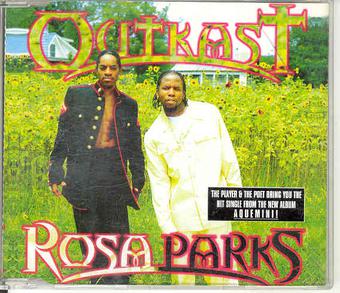
1998
Aquemini
Aquemini
[Hook]
(Continues)
(Continues)
Contributed by DonQuijote82 2009/4/9 - 10:26
Song Itineraries:
Racism and Slavery in the USA
Babies In The Mill

[1930s]
Testo trovato su Folk Archive
Canzone contro il lavoro minorile composta negli anni 30 (ma registrata solo nel 1962) da Dorsey Murdock Dixon, un operaio tessile di Darlington, South Carolina. Lui stesso aveva cominciato a lavorare in fabbrica all’età di 12 anni, ma era stato fortunato perché la sorella Nancy ed il fratello Howard avevano iniziato rispettivamente a 8 e 10 anni…
(Dead End)
BABIES IN THE MILL was written by Dorsey Dixon in the 1960s remembering the child labor he had known in earlier years of mill work. He and his family worked in the Aleo Mills in East Rockingham, North Carolina. With his brother Howard he played music at secular and religious gatherings in his community. An especially articulate writer, he... had a stint of recordings in the 30s. He had some commercial success with his WRECK ON THE HIGHWAY sung by Roy Acuff. Only that song, and to some... (Continues)
Testo trovato su Folk Archive
Canzone contro il lavoro minorile composta negli anni 30 (ma registrata solo nel 1962) da Dorsey Murdock Dixon, un operaio tessile di Darlington, South Carolina. Lui stesso aveva cominciato a lavorare in fabbrica all’età di 12 anni, ma era stato fortunato perché la sorella Nancy ed il fratello Howard avevano iniziato rispettivamente a 8 e 10 anni…
(Dead End)
BABIES IN THE MILL was written by Dorsey Dixon in the 1960s remembering the child labor he had known in earlier years of mill work. He and his family worked in the Aleo Mills in East Rockingham, North Carolina. With his brother Howard he played music at secular and religious gatherings in his community. An especially articulate writer, he... had a stint of recordings in the 30s. He had some commercial success with his WRECK ON THE HIGHWAY sung by Roy Acuff. Only that song, and to some... (Continues)
I used to be a factory hand when things was moving slow,
(Continues)
(Continues)
Contributed by DonQuijote82 2009/4/9 - 10:22
Song Itineraries:
The War of Labour: Emigration, Immigration, Exploitation, Slavery
Meceчина [Mesečina]
![Meceчина [Mesečina]](img/thumb/c111_130x140.jpeg?1328281529)
Riprendendo questa pagina per la lunga ristrutturazione delle CCG primitive, mi si è soffermato l'occhio sulla versione inglese inviata da "Emir". Stai a vedere che tra gli "ospiti in semi-incognito" di questo sito ci abbiamo avuto anche Emir Kusturica in persona...
Riccardo Venturi 2009/4/9 - 03:17
You must have remarked that the site homepage layout has been slightly altered by introducing the caption ”Anti-war Songs” in 50 languages. Not only to reaffirm the wholly international orientation of this website, but also to make search and contribution easier.
Riccardo Venturi 2009/4/9 - 01:15
Louche

[2009]
Paroles et musique par Marco Valdo M.I.
Canzone léviane – Louche
Cycle du Cahier ligné – 5.
Louche est la cinquième canzone du cycle du Cahier ligné. Elle se déroule également dans cet univers aux reflets oniriques et aux résonances politiques, en arrière-plan. On est à Rome, en plein cœur de Rome et surgit dans un décor de marbre somptueusement fasciste, au milieu de personnages louches, une Princesse de Savoie. Carlo Levi est entraîné dans cette vague et contre son gré, doit continuer le voyage avec ces personnages. C'est évidemment ce qui est arrivé au peuple italien et ce qui lui arrive encore. Quant à Pozzi Bellini, c'était un photographe italien de grande renommée au milieu du siècle écoulé.
Ainsi Parlait Marco Valdo M.I.
Paroles et musique par Marco Valdo M.I.
Canzone léviane – Louche
Cycle du Cahier ligné – 5.
Louche est la cinquième canzone du cycle du Cahier ligné. Elle se déroule également dans cet univers aux reflets oniriques et aux résonances politiques, en arrière-plan. On est à Rome, en plein cœur de Rome et surgit dans un décor de marbre somptueusement fasciste, au milieu de personnages louches, une Princesse de Savoie. Carlo Levi est entraîné dans cette vague et contre son gré, doit continuer le voyage avec ces personnages. C'est évidemment ce qui est arrivé au peuple italien et ce qui lui arrive encore. Quant à Pozzi Bellini, c'était un photographe italien de grande renommée au milieu du siècle écoulé.
Ainsi Parlait Marco Valdo M.I.
Tandis que je m’endormais,
(Continues)
(Continues)
Contributed by Marco valdo M.I. 2009/4/8 - 23:05
Auschwitz, o Canzone del bambino nel vento

SPAGNOLO / SPANISH / ESPAGNOL / ESPANJA [2]
Versión castellana de Marcia Rosati
Versione spagnola di Marcia Rosati
Spanish version by Marcia Rosati
Version espagnole de Marcia Rosati
Marcia Rosatin espanjankielinen käännös
[2008]
Luciano Ligabue, "Radiofreccia - Mondovisione"
Versión castellana de Marcia Rosati
Versione spagnola di Marcia Rosati
Spanish version by Marcia Rosati
Version espagnole de Marcia Rosati
Marcia Rosatin espanjankielinen käännös
[2008]
Luciano Ligabue, "Radiofreccia - Mondovisione"
AUSCHWITZ
(Continues)
(Continues)
Contributed by Marcia 2009/4/8 - 18:18
Attorno a quella sedia

Una nota cronologica solo per chiarire il senso di una strofa:
la canzone nasce di getto a novembre 1984 leggendo un minuscolo trafiletto sul giornale che segnalava senza pathos un'esecuzione capitale negli States corredandola dell'annuncio che il giorno dopo sarebbe toccato anche a una donna, "fatto che non accadava da anni".
La canzone in origine aveva due strofe in più a cui il tempo non ha reso giustizia e sono state perciò messe da parte.
Nei concerti dell'epoca la dedicammo spesso a Bruce Cockburn, ispiratore musicale e di denuncia ed impegno civile.
la canzone nasce di getto a novembre 1984 leggendo un minuscolo trafiletto sul giornale che segnalava senza pathos un'esecuzione capitale negli States corredandola dell'annuncio che il giorno dopo sarebbe toccato anche a una donna, "fatto che non accadava da anni".
La canzone in origine aveva due strofe in più a cui il tempo non ha reso giustizia e sono state perciò messe da parte.
Nei concerti dell'epoca la dedicammo spesso a Bruce Cockburn, ispiratore musicale e di denuncia ed impegno civile.
L'America è una grande terra,
(Continues)
(Continues)
Contributed by Fabio Bello 2009/4/8 - 17:09
Song Itineraries:
Death penalty: murder by the power
Murmansk Run/Ellis Island

[1980]
Album: "24 Carrots"
History and references behind Al Stewart's songs from www.alstewart.com
Murmansk
Murmansk is located on the Kola Gulf in the Barents Sea in Russia. It is 25 miles north of Leningrad (St. Petersburg),and about 35 miles from the open sea. It is the largest city in the world north of the Arctic Circle, and is the principal base for the Russian deep sea fishing fleet and the home of the Arctic Fisheries and Oceanography Research Institutes.
The port of Murmansk is ice free, and is kept open all winter by warm currents flowing up from the Gulf Stream. It was founded in 19115 as a port ot receive Allied supplies for the Russian armies during WWI. It was held by Allied ilnterventionists from 1918 to 1920 following the Bolshevik Revolution.
In WWII the post resisted a German drive, and was again used as a port for Allied convoys bring supplies to Russian troops.
Ellis... (Continues)
Album: "24 Carrots"
History and references behind Al Stewart's songs from www.alstewart.com
Murmansk
Murmansk is located on the Kola Gulf in the Barents Sea in Russia. It is 25 miles north of Leningrad (St. Petersburg),and about 35 miles from the open sea. It is the largest city in the world north of the Arctic Circle, and is the principal base for the Russian deep sea fishing fleet and the home of the Arctic Fisheries and Oceanography Research Institutes.
The port of Murmansk is ice free, and is kept open all winter by warm currents flowing up from the Gulf Stream. It was founded in 19115 as a port ot receive Allied supplies for the Russian armies during WWI. It was held by Allied ilnterventionists from 1918 to 1920 following the Bolshevik Revolution.
In WWII the post resisted a German drive, and was again used as a port for Allied convoys bring supplies to Russian troops.
Ellis... (Continues)
Your father sailed on the Murmansk run
(Continues)
(Continues)
Contributed by Marcia 2009/4/8 - 15:21
Piedras contra Tanques

dal PDF scaricabile dal sito del gruppo
SASSI CONTRO I CARRI ARMATI
(Continues)
(Continues)
2009/4/8 - 15:19
Running Man

[1980]
Album: "24 Carrots"
A song about Nazi war criminals hiding in South America.
Album: "24 Carrots"
A song about Nazi war criminals hiding in South America.
Before the phone hits the receiver
(Continues)
(Continues)
Contributed by Marcia 2009/4/8 - 15:12
Mon pauvre Gunther

[1977]
Album "Les Aventures de Simon et Gunther..."
Si tratta di un concept album sul tema di due fratelli separati dal Muro a Berlino.
"Simon et Gunther sont deux frères allemands : Simon est né en 1933, Gunther en 1942. Simon habite Berlin Ouest et Gunther, Berlin Est (Viertel). Leur père fut arrêté en 1942 pour désertion.
Le 13 août 1961, les deux frères ont rendez-vous rue Bernauer ; mais de chaque côté du mur, des militaires les renvoient chez eux. Suit alors une série de lettres, et les deux frères planifient alors une évasion, avec Axel et Lilli, des amis d'enfance eux aussi séparés... Axel et Lilli se retrouvent, ils sont fiancés et attendent encore un enfant. On apprend qu'il n'y a plus de nouvelles de Simon. On peut supposer qu'en essayant de passer Simon se fait tuer alors qu'Axel réussit à passer."
(fr.wikipedia)
Album "Les Aventures de Simon et Gunther..."
Si tratta di un concept album sul tema di due fratelli separati dal Muro a Berlino.
"Simon et Gunther sont deux frères allemands : Simon est né en 1933, Gunther en 1942. Simon habite Berlin Ouest et Gunther, Berlin Est (Viertel). Leur père fut arrêté en 1942 pour désertion.
Le 13 août 1961, les deux frères ont rendez-vous rue Bernauer ; mais de chaque côté du mur, des militaires les renvoient chez eux. Suit alors une série de lettres, et les deux frères planifient alors une évasion, avec Axel et Lilli, des amis d'enfance eux aussi séparés... Axel et Lilli se retrouvent, ils sont fiancés et attendent encore un enfant. On apprend qu'il n'y a plus de nouvelles de Simon. On peut supposer qu'en essayant de passer Simon se fait tuer alors qu'Axel réussit à passer."
(fr.wikipedia)
Mon pauvre Gunther
(Continues)
(Continues)
Contributed by Alessandro 2009/4/8 - 14:49
Song Itineraries:
The Berlin Wall, 1961-1989
League Of Notions
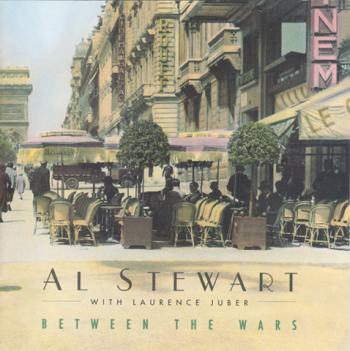
[1995]
Album: "Between the Wars"
History and references behind Al Stewart's songs from www.alstewart.com
League of Nations
The League of Nations was an international organization formed after World War I to promote cooperation, peace and security. The basis for the League is found in the Treaty of Versailles,which provided for such an international assembly. The United States, which failed to ratify the Treaty of Versailles, never became a member.
Based in Geneva, the League was useful in settling minor disputes, but it was unable to stop acts of aggression by major powers, such as Japan's invasion of Manchuria (1931), Italy's conquest of Ethiopia (1936), etc. It collapsed early in World War II, and was dissolved in 1946.
The League established a pattern, however, that was later emulated in the development of the United Nations.
Churchill's Hiccup
Legend has it that Winston Churchill... (Continues)
Album: "Between the Wars"
History and references behind Al Stewart's songs from www.alstewart.com
League of Nations
The League of Nations was an international organization formed after World War I to promote cooperation, peace and security. The basis for the League is found in the Treaty of Versailles,which provided for such an international assembly. The United States, which failed to ratify the Treaty of Versailles, never became a member.
Based in Geneva, the League was useful in settling minor disputes, but it was unable to stop acts of aggression by major powers, such as Japan's invasion of Manchuria (1931), Italy's conquest of Ethiopia (1936), etc. It collapsed early in World War II, and was dissolved in 1946.
The League established a pattern, however, that was later emulated in the development of the United Nations.
Churchill's Hiccup
Legend has it that Winston Churchill... (Continues)
I'm here sitting in the wreck of Europe
(Continues)
(Continues)
Contributed by Marcia 2009/4/8 - 14:44
Lady Marlène
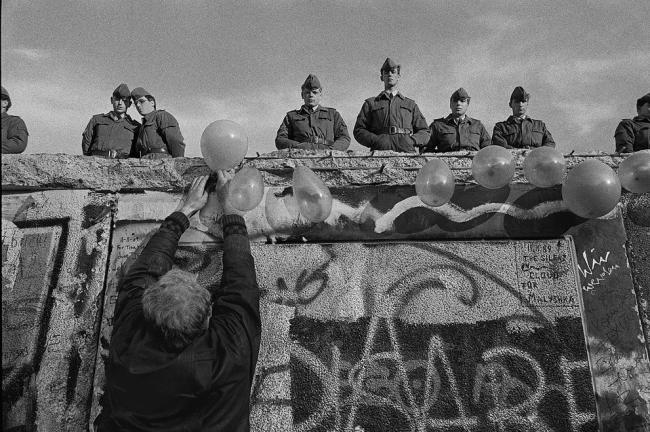
[1977]
Album "Les Aventures de Simon et Gunther..."
Gli "hommes en vert" erano i "vopos", gli uomini della Volkspolizei della Germania Est incaricati della vigilanza sul Muro a Berlino...
Album "Les Aventures de Simon et Gunther..."
Gli "hommes en vert" erano i "vopos", gli uomini della Volkspolizei della Germania Est incaricati della vigilanza sul Muro a Berlino...
Près du mur
(Continues)
(Continues)
Contributed by Alessandro 2009/4/8 - 14:32
In Red Square

[1996]
Album: "Seemed Like a Good Idea at the Time"
A song about Soviet Union leaders.
History and references behind Al Stewart's songs.
Joseph Vissarionovich Stalin (1879 - 1953)
Stalin was born Iosif Vissarionovich Dzhugashvili in Gori, Georgia, Transcaucasia. He attended the parish school in Gori, and entered the seminary of Tiflis in 1894. There he demonstrated himself to be an able student and ambitious leader. In 1898 he joined a Georgian socialist organization and came under the influence of Marxism. In 1899, just prior to graduation, he was expelled from the seminary because of his "disloyal" views.
He was arrested in 1902 and remained in prison until 1903. While in prison he was elected a member of the Social Democratic committee. He was deported to Siberia, escaped, and returned to Tiflis in 1904 shortly after the Social Democratic Party had split into bolsheviks and mensheviks.... (Continues)
Album: "Seemed Like a Good Idea at the Time"
A song about Soviet Union leaders.
History and references behind Al Stewart's songs.
Joseph Vissarionovich Stalin (1879 - 1953)
Stalin was born Iosif Vissarionovich Dzhugashvili in Gori, Georgia, Transcaucasia. He attended the parish school in Gori, and entered the seminary of Tiflis in 1894. There he demonstrated himself to be an able student and ambitious leader. In 1898 he joined a Georgian socialist organization and came under the influence of Marxism. In 1899, just prior to graduation, he was expelled from the seminary because of his "disloyal" views.
He was arrested in 1902 and remained in prison until 1903. While in prison he was elected a member of the Social Democratic committee. He was deported to Siberia, escaped, and returned to Tiflis in 1904 shortly after the Social Democratic Party had split into bolsheviks and mensheviks.... (Continues)
It's a shame about Stalin, the curator said
(Continues)
(Continues)
Contributed by Marcia 2009/4/8 - 14:21
Fields Of France

[1988]
Album: "Last Days of the Century"
A song about a World War I pilot.
(Marcia)
Album: "Last Days of the Century"
A song about a World War I pilot.
(Marcia)
His flying jacket still has her perfume
(Continues)
(Continues)
Contributed by Marcia 2009/4/8 - 13:08
Song Itineraries:
World War I (1914-1918)
Russians And Americans
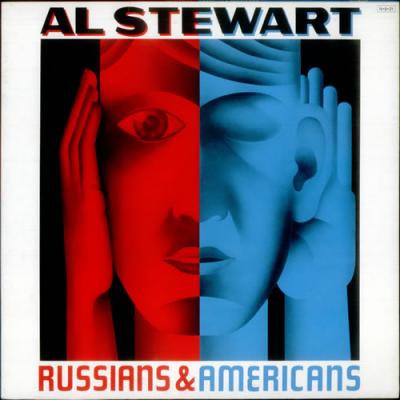
[1984]
Album: "Russians and Americans"
Album: "Russians and Americans"
So here we stand at the edge of 1984
(Continues)
(Continues)
Contributed by Marcia 2009/4/7 - 18:24
Trains
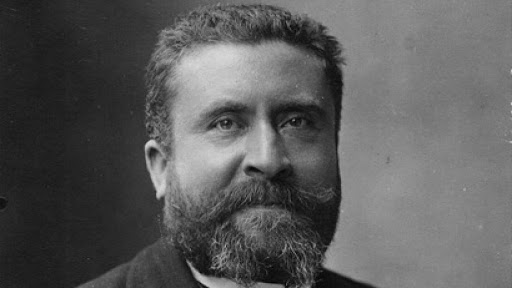
[1993]
Album: "Famous Last Words"
History and references behind Al Stewart's songs from www.alstewart.com
Jean Jaurès (1859 - 1914)
Jean-Joseph-Marie-Auguste Jaures was one of the leaders of the French Socialist movement during its formative years. He was born in Castres, France on September 3, 1859 and attended the Ecole Normale Superieure in Paris, earning the title agrege de philosophie. Upon graduation he worked as a teacher at the lycee of Albi (1881-83) and as a lecturer at the University of Toulouse (1883-85).
He was elected to the Chamber of Deputies in 1885 with no political affiliation. After his defeat in 1889, he returned to the university. In 1891 he presented two theses for his doctorate. He was returned to the chamber during the by-election of 1893. Although he was defeated again in 1898, he served again after being elected in 1902, 1906, 1910 and 1914.
By his election... (Continues)
Album: "Famous Last Words"
History and references behind Al Stewart's songs from www.alstewart.com
Jean Jaurès (1859 - 1914)
Jean-Joseph-Marie-Auguste Jaures was one of the leaders of the French Socialist movement during its formative years. He was born in Castres, France on September 3, 1859 and attended the Ecole Normale Superieure in Paris, earning the title agrege de philosophie. Upon graduation he worked as a teacher at the lycee of Albi (1881-83) and as a lecturer at the University of Toulouse (1883-85).
He was elected to the Chamber of Deputies in 1885 with no political affiliation. After his defeat in 1889, he returned to the university. In 1891 he presented two theses for his doctorate. He was returned to the chamber during the by-election of 1893. Although he was defeated again in 1898, he served again after being elected in 1902, 1906, 1910 and 1914.
By his election... (Continues)
In the sapling years of the post war world
(Continues)
(Continues)
Contributed by Marcia 2009/4/7 - 18:04
Song Itineraries:
Trains
×
![]()


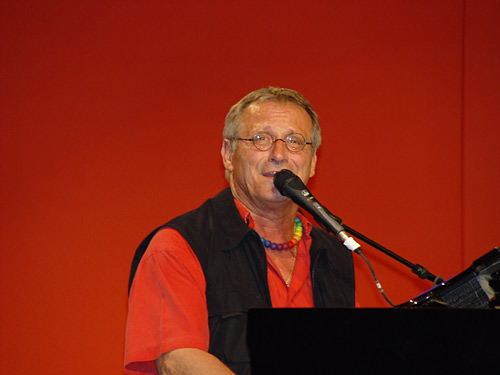
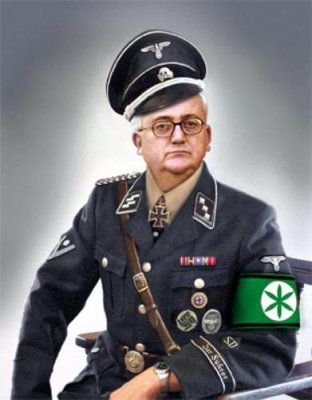
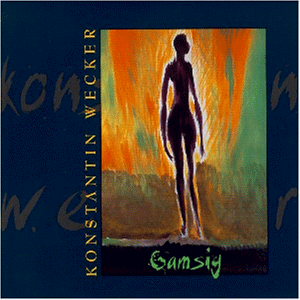

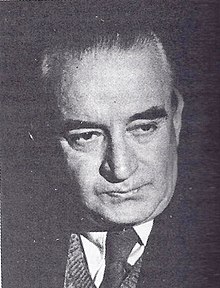



![4 / 3 / 1943 [Gesubambino]](img/thumb/c318_130x140.jpeg?1328285286)


![Johnny Has Gone For A Soldier [Siúil a ruin; Shule Aroon]](img/upl/paolosollier.jpg)
